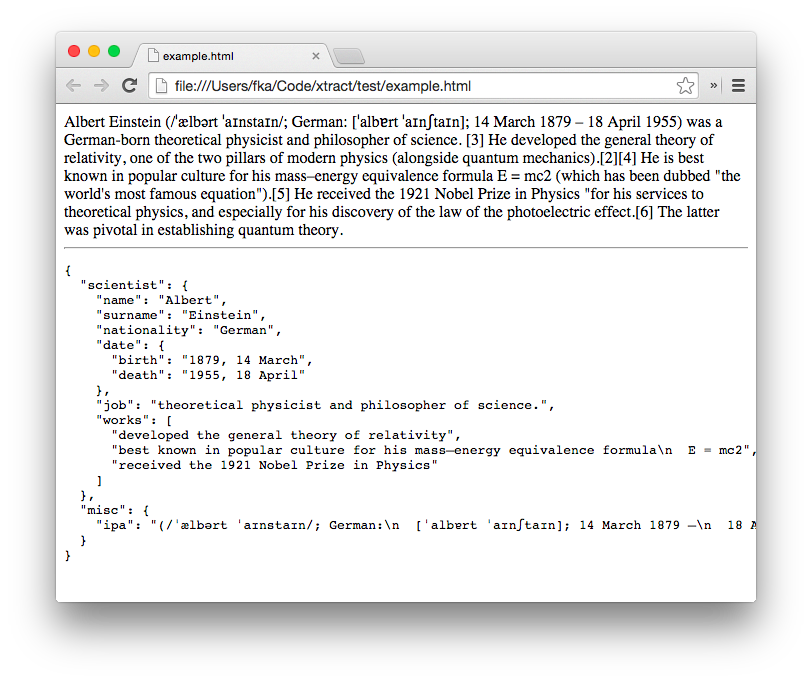Extract data from DOM, easily. Useful for back-end generated contents and SEO-friendly rich apps.
npm install xtract
- This works on browser, not node.js. But if you use jsdom, you can.
- Requires jQuery.
SEO is the main problem of modern web. And we have problems with passing the data from HTML to JavaScript. Your back-end generated data is need to be mapped to JavaScript and Xtract helps you to do that.
<p id="profile">
My name is <span data-x="user.name">Fatih</span>,
and I'm from <span data-x="user.location">Istanbul</span>.
</p>You can simply extract data now just calling:
xtract($("#profile")).$modelThis will generate following object:
{
user: {
name: "Fatih",
location: "Istanbul"
}
}<p id="profile">
My name is <span data-x="user.name.firstname">Fatih</span>
<span data-x="user.name.lastname">Akın</span>,
and I'm from <span data-x="user.location.city">Istanbul</span>,
<span data-x="user.location.country.name">Turkey
(<span data-x="user.location.country.code">TR</span>)</span>.
</p>xtract($("#profile")).$modelThis will generate following object:
{
user: {
name: {
firstname: "Fatih",
lastname: "Akın"
},
location: {
city: "Istanbul",
country: {
name: "Turkey",
code: "TR"
}
}
}
}You can use $this in data-x attribute to reach more values.
<p id="profile">
<img src="my-profile-picture.jpg" data-x="user.image: $this.attr('src')">
My name is <span data-x="user.name">Fatih</span>,
and I'm from <span data-x="user.location">Istanbul</span>.
</p>xtract($("#profile")).$modelThis will map the src tag to the user.image:
{
user: {
name: "Fatih",
location: "Istanbul",
image: "my-profile-picture.jpg"
}
}You can simply write plugins to use extract easier.
xtract.plug('date', function () {
return $(this).text().replace(/(\d+)\s+(\w+)\s+(\d+)/, '$3, $1 $2');
});The static HTML:
<div>
Einstein: <span data-x="date.birth: $this.date()">14 March 1879</span> –
<span data-x="date.death: $this.date()">18 April 1955</span>
</div>Output:
date: {
birth: "1879, 14 March",
death: "1955, 18 April"
},MIT.
